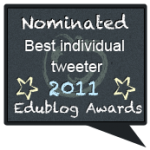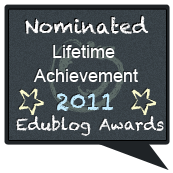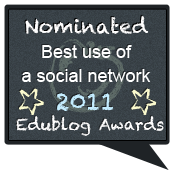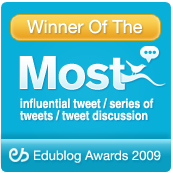Educators like all learners have a preferred way of learning. Some think of it as different “styles of learning”, but even that theory of “learning styles” has been questioned by some. In a profession, which resides in a world where content and information constantly change and evolve at a rapid rate of speed, educators need to maintain relevance in order to create an authentic and meaningful environment for their students to learn and create.
Educators have always needed to master the understanding of at least two fields of endeavor to be successful. First, they needed to master their content field. They are required to be experts of content. Second, they needed to master the field of education with a clear understanding of the latest and greatest methodology and pedagogy available. The 21st Century has now further complicated the teaching profession by requiring an additional third area of mastery, digital literacy. This is required to accomplish many of the necessary tasks in the space occupied by our nation in a computer-driven world. It is the mastery of this third element that educators struggle with today. It is this third element that also directly affecting the evolution of content and education.
The problems stemming from this are many. How do we stress the importance of digital literacy to a group of people, many of whom are digitally illiterate in the modern sense of the term? How do we get educators to remain relevant in their areas of expertise, if their access to content is limited to the methods and tools of the 20th Century? How do we get educators to participate in collaborative learning on a global basis, when they are comfortable with their day-to-day, face-to-face connections with only their building colleagues?
Being a “connected educator” requires collaborative learning as a key to expanding personal learning. It requires at the least, a basic understanding of digital literacy. It requires an understanding of the connected culture in order to reap the full benefits of collaboration. It requires an investment of time that will vary with each individual depending on their learning capacity. Being a Connected Educator is a mindset and not the result of a workshop or seminar for professional development. It is that leap of faith to adopt a mindset for connectedness that will prevent us from soon becoming a profession of connected educators. There will always be some that will keep their feet firmly planted in the 20th century, because, to their way of reasoning, it served them well then, so it should serve them well today. The two biggest obstacles to change require leaving behind control and comfort zones. This is not easily done.
I don’t even know if the answer to the problem could be solved by top down, or bottom up solutions. It will be more reliant on the culture of each school. To change any system, we must first change the culture. We no longer have a choice about using technology in education, since the education system is part of a society that depends on technology to communicate, collaborate, communicate, and create. The children that educators are preparing for life in that society deserve to receive the most relevant education based on up-to-date information, using the latest methodology, pedagogy, and tools for learning that are available. Little from the 20th century will serve them as well, as that which is in their own century.
We need to help our colleagues be less intimidated by all that is new. We should not put unrealistic time limits on their progress. It is a mindset, and we each will arrive there at our own speed. We must however strive together to get there. Not to attempt to do so is being remiss in our responsibility or our solemn obligation to create in our students the ability to be life long learners through our words and our own actions as life long learners ourselves.











